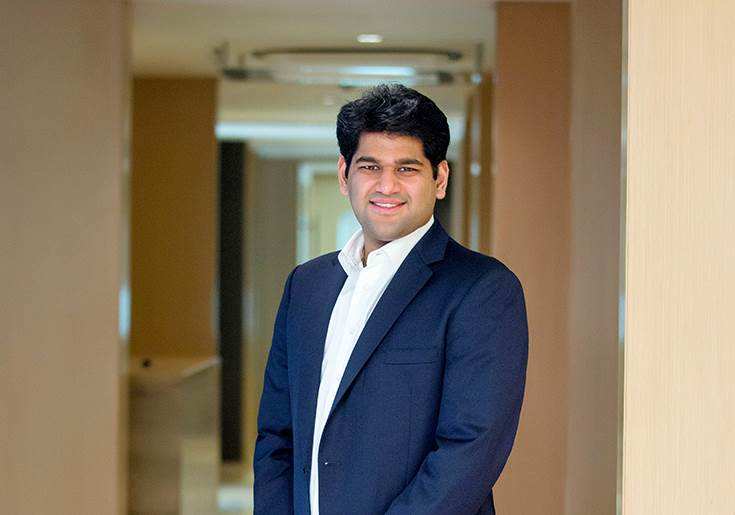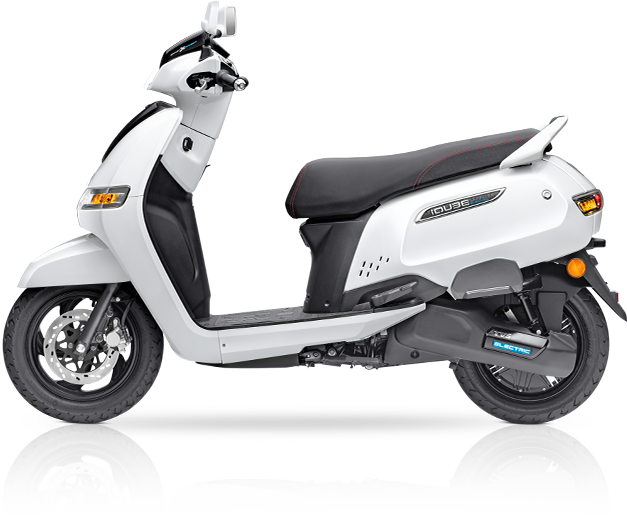
Mumbai: TVS Motor Company, India’s third-largest two-wheeler maker, has committed Rs 1,000 crore to manufacture electric vehicles under a separate vertical, Sudarshan Venu, the company’s joint managing director, said in an exclusive interview.
Sudarshan, a scion of the TVS Group, leads the new strategy for the company. He’s being mentored by Ralf Speth, former CEO of Jaguar Land Rover, who was recently appointed as chairman of TVS Motor, and Kuok Meng Xiong, an investor in leading global ecommerce firms ByteDance, Palantir and Airbnb.
The increasing focus of startups on the EV segment does not worry Sudarshan. TVS is readying a complete portfolio of two and three wheelers in the range of 5-25kW, all of which will be in the market within 24 months. The company envisages presence across electric vehicles segments such as the delivery market, commuter space, premium scooters, high-performance sporty motorcycles and electric three-wheelers.. The company’s EV range will be parallel to the current petrol-powered range.
We’ve quietly worked on EVs for the last one decade. It is a huge focus area for us as we advance. We are embracing this future; we are investing in it and are excitedSudarshan Venu, Joint Managing Director of TVS Motor Company
Sudarshan said he foresees TVS transforming into a digital-age company with a connected, cool and electric brand, and the commitment of Rs 1,000 crore is in that direction.“We’ve quietly worked on EVs for the last ONE decade. It is a huge focus area for us as we advance. We are embracing this future; we are investing in it and are excited,” Sudarshan said. “We want to scale up the TVS electric experience pan India, and it is a space where we would like to play a leading role.”
TVS Motor’s new EV vertical, which has 500-600 engineers, s already working on various concepts to meet market needs. This new range of electric vehicles, designed and developed in India with a global R&D ecosystem, aims to serve to the foreign markets too.
The company has set up a dedicated facility for electric vehicles, which Sudarshan said is scalable. The company is also developing integrated vehicle architecture with a critical backend manufacturing of battery and other critical parts managed in house.
Declining to hazard a guess on potential EV penetration, Sudarshan added, that the number would depend on many factors most important customer adoption and market dynamics . He added that by 2025, with falling battery cost, sustained policy support, and the investment in product launches, customer acceptance will accelerate. “The bull case of the industry is what we will plan for, and we will invest behind it, and be ready for it” he said.
As a first step, TVS’s first EV offering, iQube, currently sold in Bengaluru, Chennai, Coimbatore, Delhi and Pune, will be available across 1,000 dealerships in major towns and cities by the end of the FY22. Around the same time, the company will also launch its scooter based on the Creon concept–which TVS claims will be the most advanced electric two wheelers in India.

Sudarshan claimed that TVS Motor has a “clear path” to positive gross margin for iQube, which will be attained by the end of the year.
“We are improving the profitability of our core business and cutting any capex on non-core areas to keep the focus on electrification and digital future,” he said.
Sudarshan, explaining the roles of Ralf Speth and Kuok Meng Xiong—whom he addresses as SRS and MX—said Speth is a global icon and his passion for technology, building great products, and the brand is something the company is learning from, while MX’s forte is technology, and so his inputs will be invaluable and pivot in shaping the vision for future mobility.
While EVs have seen a flurry of new-age entrants, the mainstream two-wheeler makers have been measured in their approach. The incumbents have been working on a strategy. It is seen in the rebirth of the Chetak brand from Bajaj Auto and now the aggression from TVS. Meanwhile, market leader Hero MotoCorp has steadily increased its investment in Ather Energy, including kick-starting its own EV projects in-house.
Charging infrastructure is important and is critical for faster adoption of EVs, said Sudarshan, adding that TVS Motor is eyeing partnerships to create an ecosystem of fast-charging vehicles.
On the sales numbers of the last couple of years, Sudarshan said to “look ahead” is better than viewing the past.
“We should see very rapid growth from here on. While the total cost of ownership parity is still some time away, in the three to five years, you will see significant growth in the industry; that is why we are investing,” he said.
Sudarshan said believes that EV development has to be “ground-up”, and that India can play a leading role in EVs, much like conventional two-wheelers in the export market.
Lauding both the state and central government for sops extended, Sudarshan said any policy support in the future should be towards “development of technology”, especially in battery technology, cell chemistry and allied parts.
For charging infrastructure, the company is in talks with several private and public discoms to install infrastructure for fast charging.
TVS is deeply entrenched in the startup ecosystem with a big focus on telematics and connectivity platforms. These areas have strategically contributed to the company’s core business so far, and they will enhance the EV buying experience. The company has learnt the ‘art of being agile, which will be critical in the future connected and digital world, he said.














